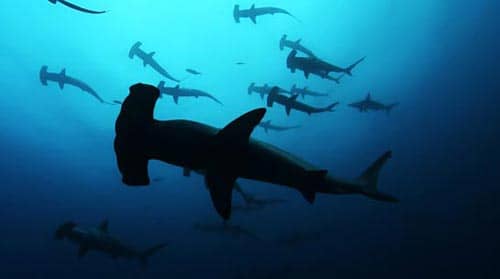 It’s hard to imagine a species that is so feared and yet is under so much threat of extinction. An old friend of mine Michael Skoletsky is a long-time diver. Over the last few years he has become increasingly concerned and passionate about the threat faced by sharks. To that end with five other fellow divers, he founded sharksavers.org.
It’s hard to imagine a species that is so feared and yet is under so much threat of extinction. An old friend of mine Michael Skoletsky is a long-time diver. Over the last few years he has become increasingly concerned and passionate about the threat faced by sharks. To that end with five other fellow divers, he founded sharksavers.org.
Their mission is to educate people about impact we are having on sharks and why it’s so important to save them. In their own words.
We focus on education and awareness
because most people still think sharks are out to kill them, or don’t
know that sharks are being fished towards extinction, or are unaware of
the of disastrous impact that shark eradification has on the oceans and
food supply, or don’t know that mercury in shark fin soup is hazardous.
because most people still think sharks are out to kill them, or don’t
know that sharks are being fished towards extinction, or are unaware of
the of disastrous impact that shark eradification has on the oceans and
food supply, or don’t know that mercury in shark fin soup is hazardous.
It’s a worthwhile cause. Please check them out. It’s a good site too!

Predators get a bad rap that they don’t deserve. They are an important part of the ecosystem, and when they’re removed, everything goes out of balance.
Case in point: the removal of wolves and mountain lions from the western U.S. — the effects weren’t just the obvious ones, disease and starvation caused by deer and elk overpopulation. It turns out that with predators around, the prey animals don’t stay in the same place for long, but without predators, they stick around streams, denude the ground, and cause silt to flow into the streams, killing the fish and thus removing the food supply for anything that eats the fish, which then upsets the food chain for anything that eats whatever eats the fish.
I don’t know what sort of similar unintended consequences might accompany a loss of sharks, but I can imagine it’s similar.